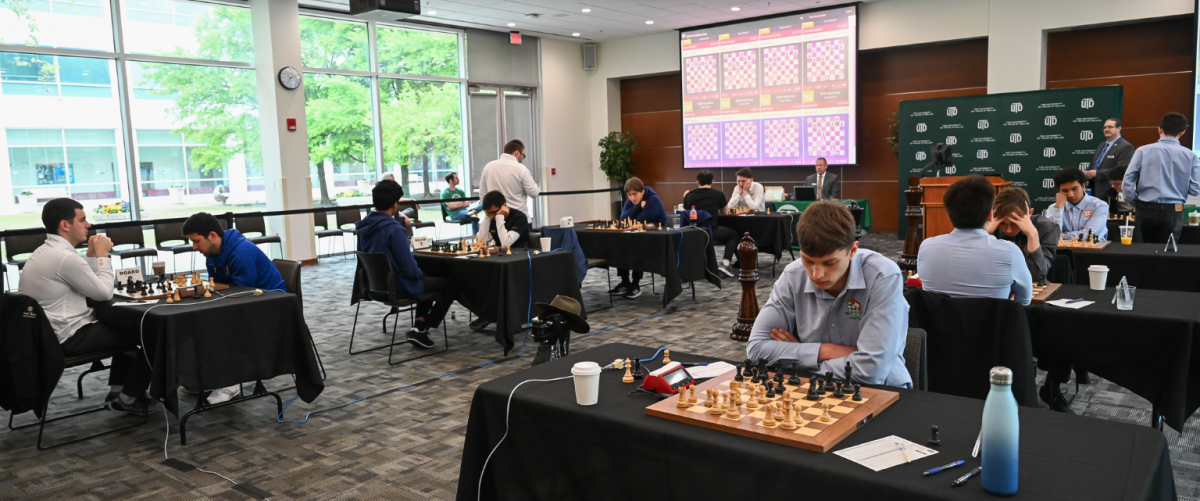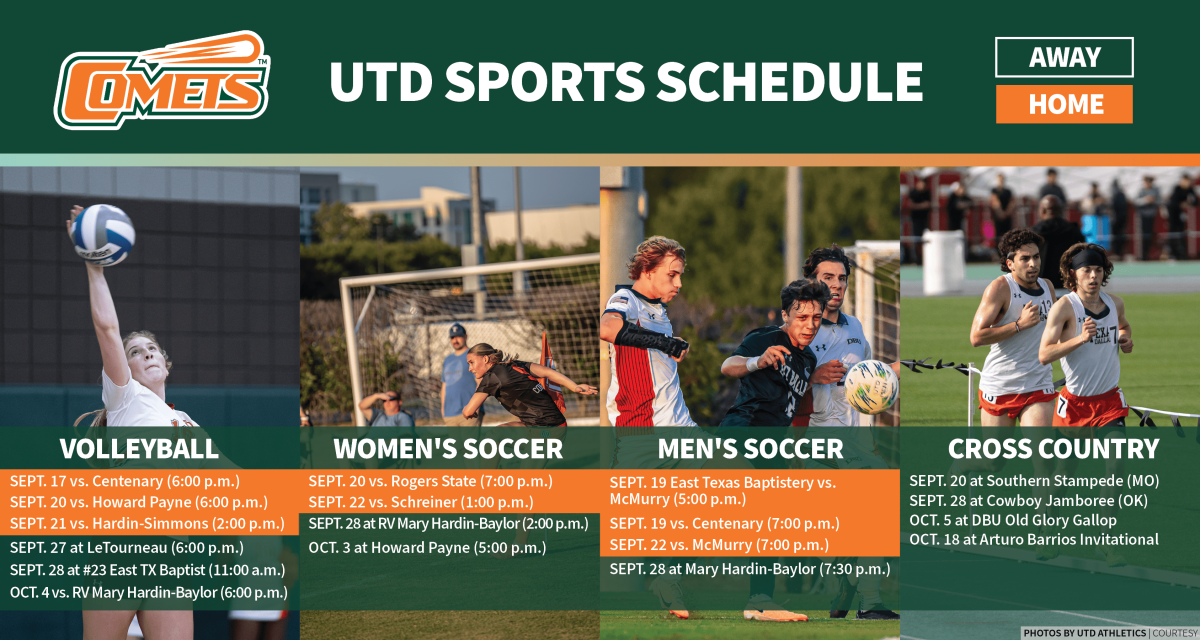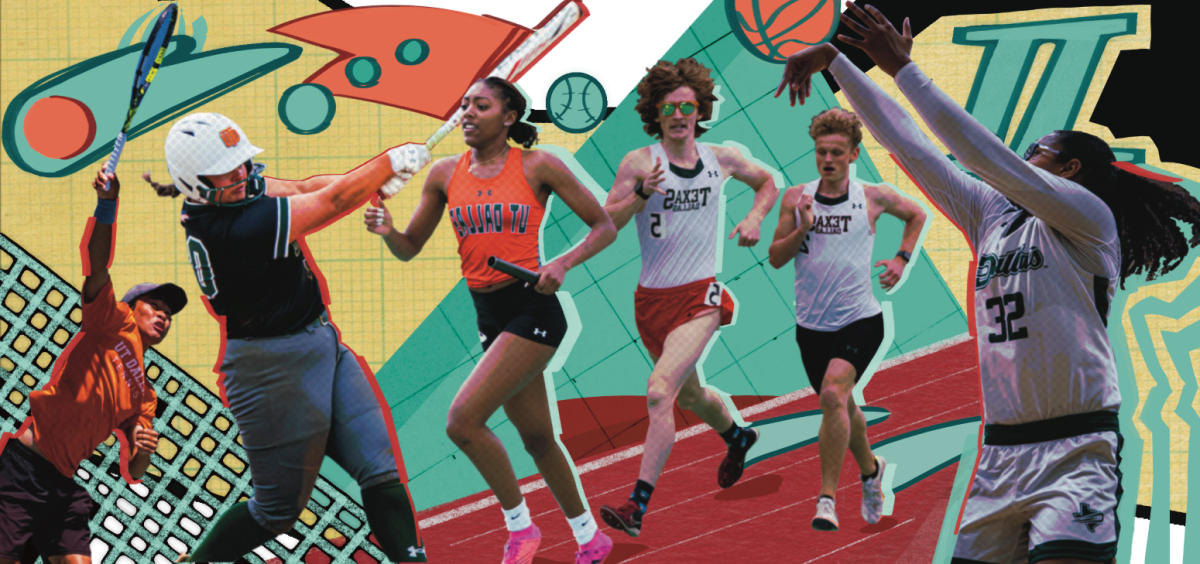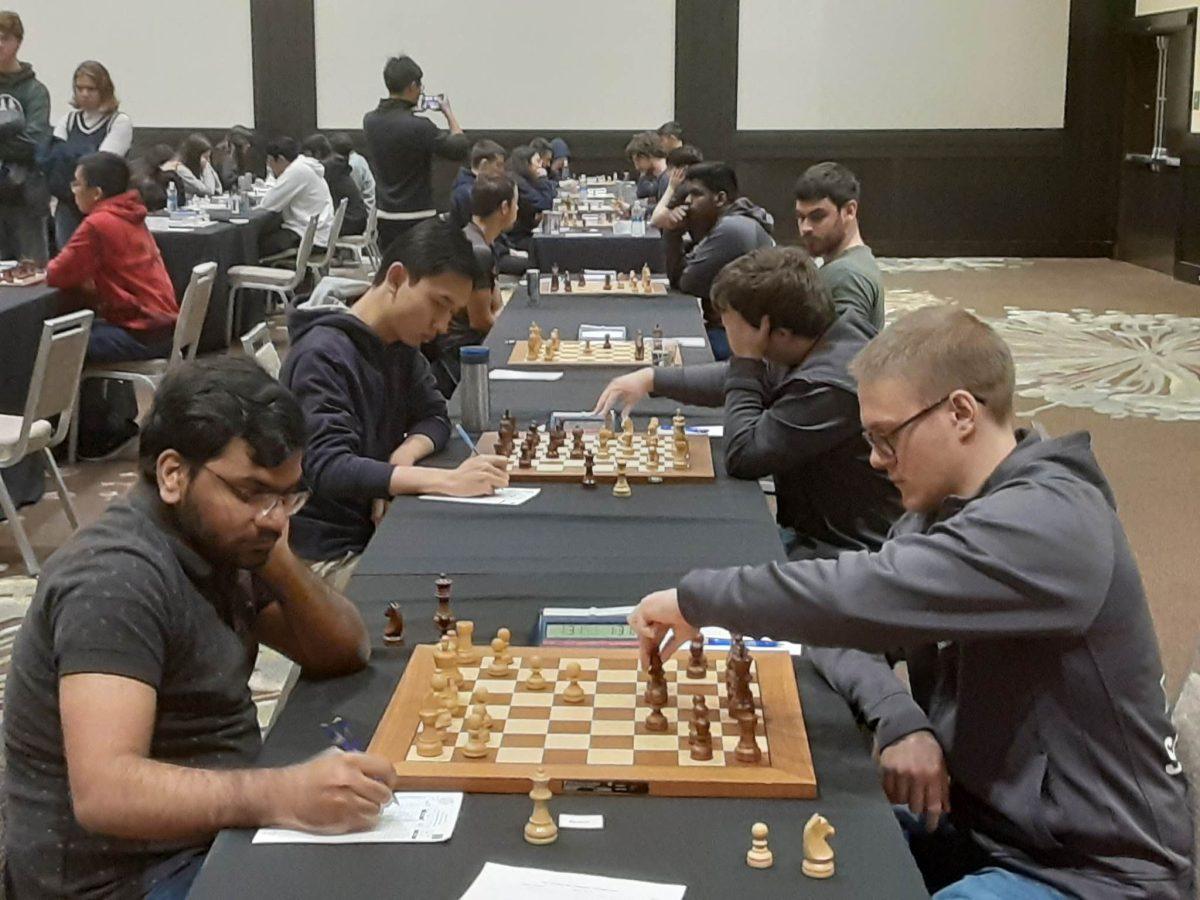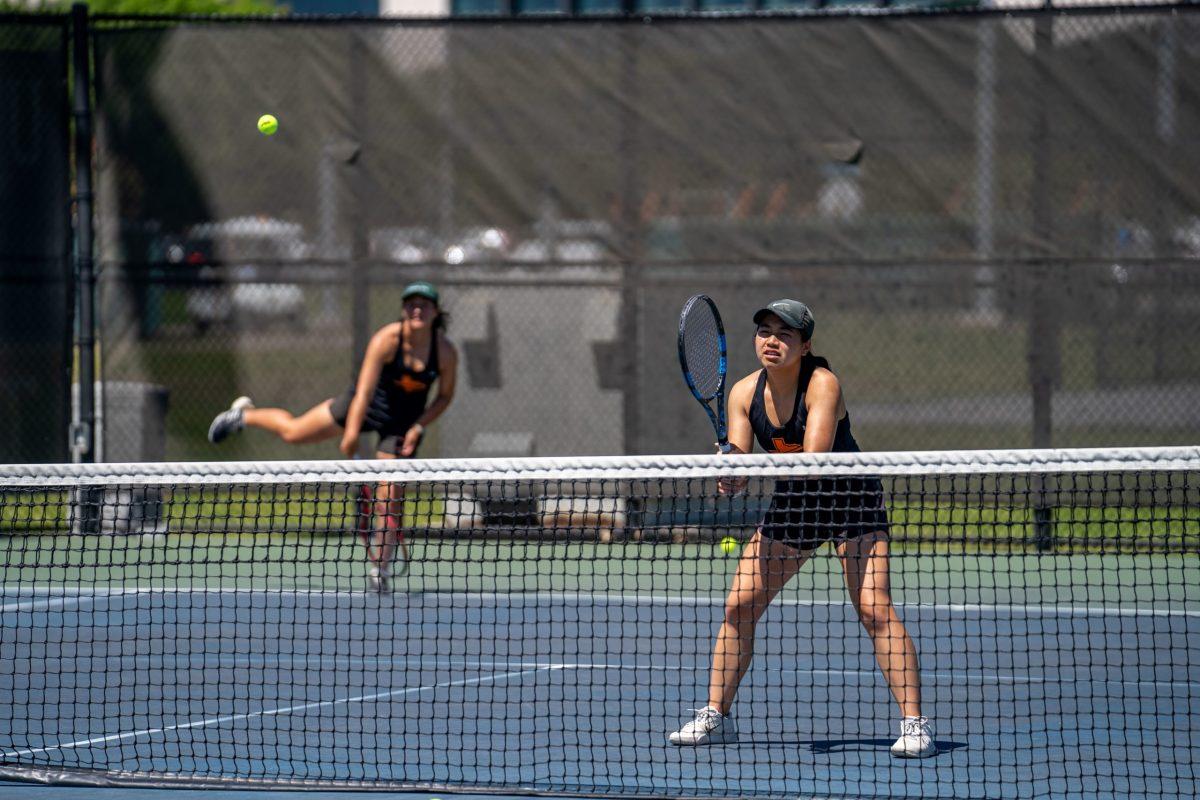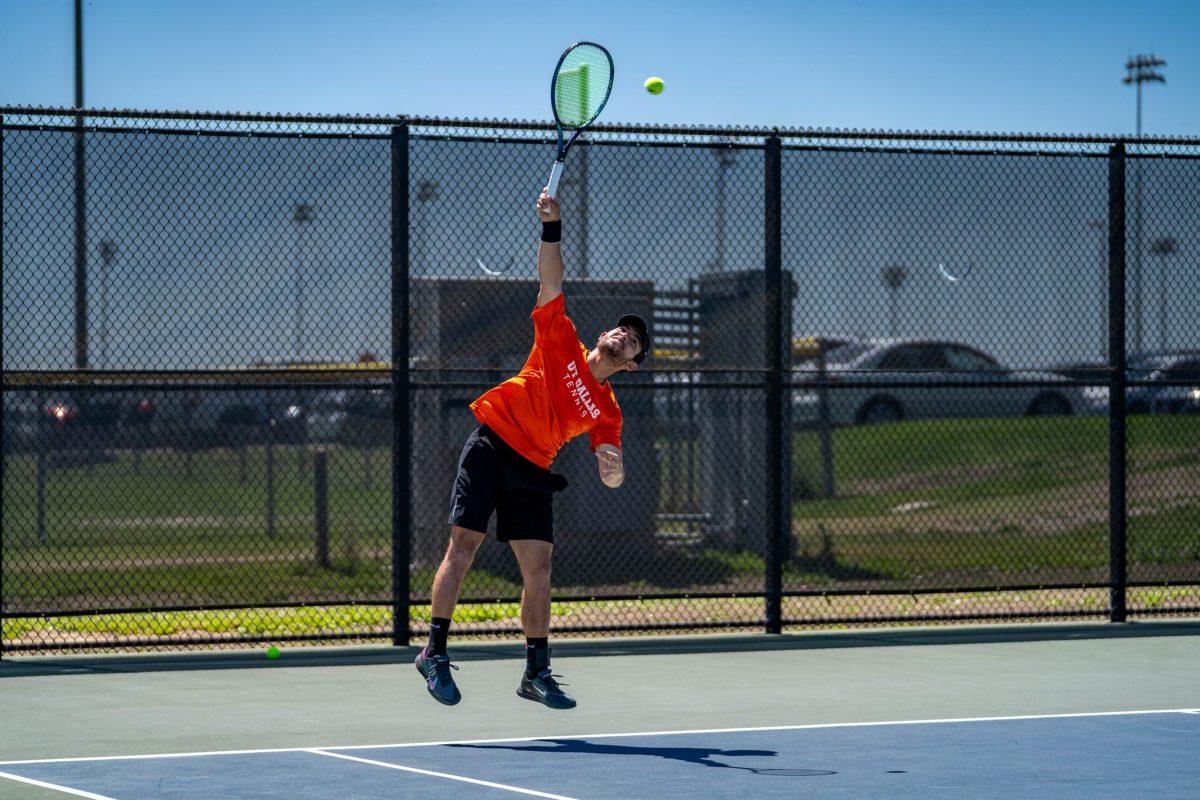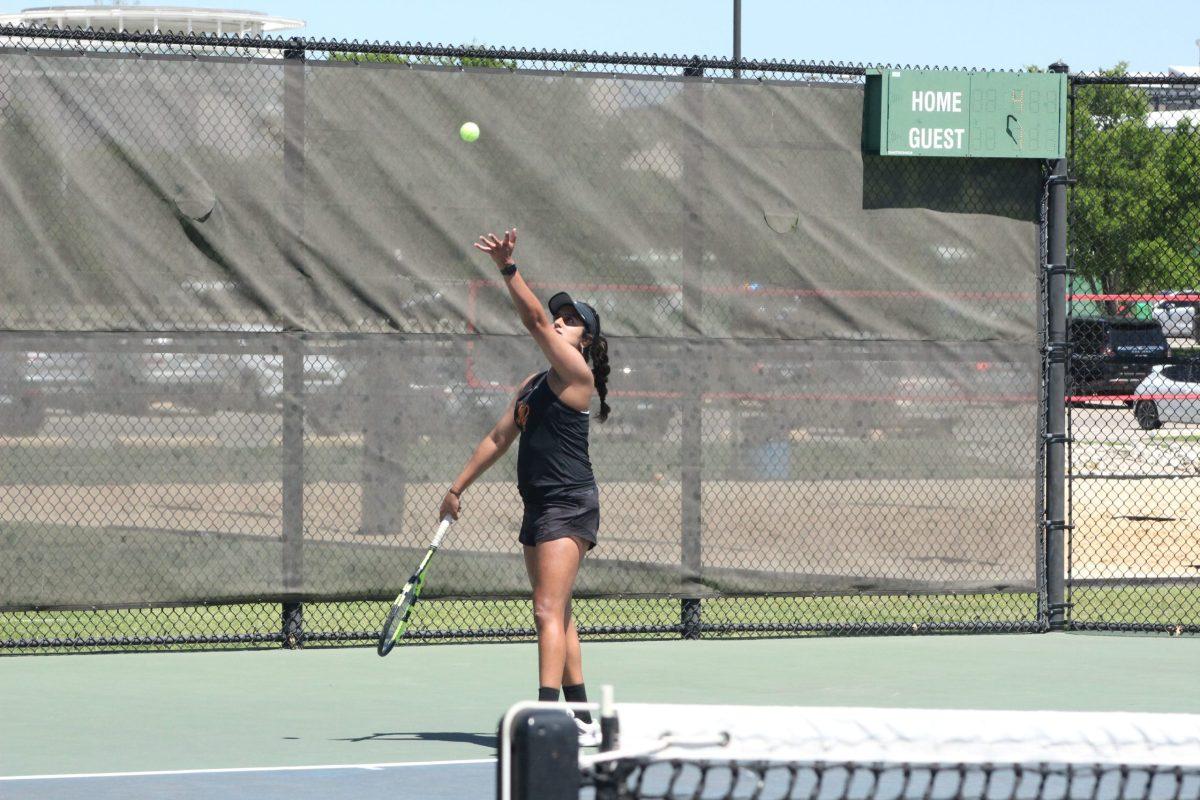The UTD Chess team organized the President’s Cup on March 30 and 31 in the JSOM building through a bidding process with the US Chess Federation. However, despite the effort they put into hosting the tournament, the UTD Chess team placed last — a surprise and disappointment to the team.
Four universities participated in the tournament all winners at the Pan-Ams: Mizzou, Webster, UT Rio Grande Valley and UTD. The chess team was defeated in rounds 1 and 2 by Webster and Mizzou respectively and tied with UTRGV in round 3. The UTD players that competed in the tournament included David Brodsky, Koustav Chatterjee, Brian Escalante Ramirez and Karolis Juksta. Chess Coach Julio Sadorra said while he was disappointed at the result, the team will continue to put as much effort as possible into the next season; Sadorra said he believed the team performed better in training than what they showed at the tournament. Juksta believed that there was pressure coming from the other opponents which made them perform worse than expected.
“We came there expecting to play really well and we all knew we were better than this, but sometimes this happens,” Sadorra said.
UTD Chess continues to focus on improving as a team, recruiting international masters and grandmasters and working on strategy. Sadorra said that the Comets faced up against grandmasters that had more than 2650 in ELO rating for boards 1 and 2 for both Webster and Mizzou, which put them in a tough spot at the start. According to the results, the UTD chess team had Brodsky as board 1 — with an ELO rating of 2613 — and Chatterjee as board 2 — with an ELO rating of 2615. However, even with the loss, Sadorra said they are growing from their mistakes.
“I know it’s difficult, but [I’m] still proud of the effort,” Sadorra said. “The effort we use is going to be rewarded tenfold… We accept the losses, but it’s time to practice it, [to] learn from it.”
Juksta said that the team had a basic strategy based on their starting point. If the Comets played with the white pieces they would try and push, but if they had the black pieces they would stand their ground and try to make a draw or win — especially against higher rated players. In round 1, Juksta said he drew with Gergely Kantor from Webster, but Brodksy was in trouble playing against Webster’s board 1; in the end they lost that match. Juksta said after losing the first round, it would have been difficult to make a comeback.
“It was like a really big loss — three and a half to half — which is already impossible to make a comeback because in this tournament all the teams qualified during the Pan Ams. And now all of the teams’ one goal [is] to win [first place], and all the other placements didn’t really matter,” Juksta said.
In round 2, all the Comets lost due to unlucky positions against Mizzou, except Juksta, who drew against Luka Budisavljevi. At this point, the team was trying to fight for third place against UTRGV. In round 3, Brodsky won his game against Viktor Gazik from UTRGV, and Chatterjee and Juksta drew with Irakli Beradze and Juraj Druska respectively, making the match a draw overall.
“I drew again, but we had to win at least three, and the team match ended with two points,” Juksta said. “So they came in third and we got fourth,” Juksta said.
Juksta said that with each of his games, he played closed openings, which helped him defend his pieces. He tried to neutralize his opponents’ plans and take as little risk as possible so he could draw, since all of his opponents were higher rated than him.
“So it came into the positional battle, which both me and my opponents managed pretty well and [as expected] all the games finished in draws,” Juksta said.
To plan the tournament, Jim Stallings — director of the UTD Chess program — offered a bid to the US Chess Federation to host the President’s Cup in JSOM. Eventually they won the bid, and Sadorra worked with Jeanette Henriques, program manager in Executive Education, to make sure everything was in place for the event.
“I find victory in the way we hosted this,” Sadorra said. “Probably the way we organized the event, [using] billboards, it’s advertised really well.”
Sadorra would like to thank UTD admin for coming out and supporting them in the tournament, as well as the reserve team and chess club members for helping set up.

